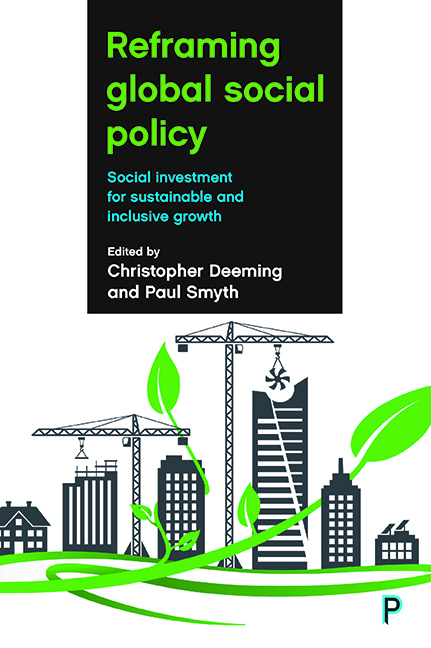Twelve - Social politics puzzling: governance for inclusive growth and social investment
Published online by Cambridge University Press: 12 April 2022
Summary
Policy communities run on ideas as much as interests, on puzzling as much as powering, as Hugh Heclo taught us years ago. This is even more so the case for global social politics where key actors such as international and transnational organisations have few tools for powering – they do not set policy – and they must rely on the force of their propositions to have influence. This force involves not only the production of coherent and convincing quasi-concepts, but also their diffusion across policy communities at the national or other relevant levels of political authority. But national and subnational policy communities also engage in similar ‘puzzling over problems of collective action … [that] occurs in the networks of informed activists and policy middlemen as well as through the learning pathways opened and closed by previous policy decisions’ (Heclo, 2010 [1974]: xviii).
As Chapter One of this volume sets out in detail, global social policy in the past decade has engaged in such puzzling by deploying two key concepts: social investment and inclusive growth. Each was developed as a response to what were defined as the excesses of neoliberalism. They provided policy directions for addressing and perhaps halting high and rising rates of poverty and the menacing consequences of social exclusion provoked by the politics of structural adjustment and market fundamentalism, especially after the crisis of 2008. In its Europe 2020 10-year strategy the EU, for example, promised to pursue ‘smart, sustainable and inclusive growth’, and the strategy was quickly followed in 2013 by the Social Investment Package and a Recommendation for investing in children.
A secondary, and no doubt unintended consequence, of this mobilisation to correct what Chapter One describes as the ‘onesided economism of the neoliberal period’ was the ‘boundary crossing’ that occurred around these two concepts. For example, social investments in human capital to combat child poverty were promoted simultaneously for children in Latin America and Europe, via ideational and organisational cross-boundary work by, among others, UNICEF and the OECD (Jenson, 2010: 74–6). Inclusive growth's conceptual development too involved boundary crossing. Pro-poor policies for development and a global anti-poverty consensus transitioned into an approach to inclusive growth that integrated the social investment perspective as its social policy arm (Jenson, 2015a; Deeming and Smyth, 2015).
- Type
- Chapter
- Information
- Reframing Global Social PolicySocial Investment for Sustainable and Inclusive Growth, pp. 273 - 294Publisher: Bristol University PressPrint publication year: 2017



